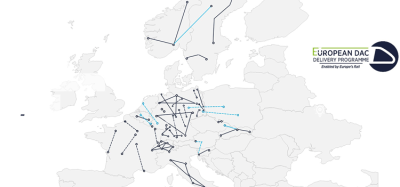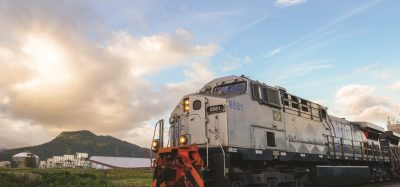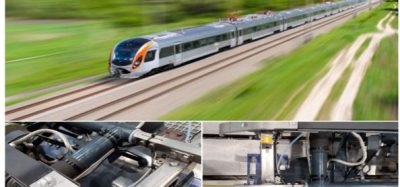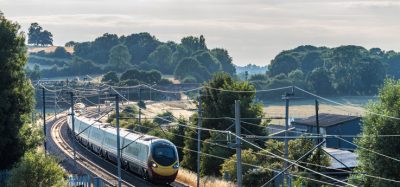Q&A with Digital Rail Revolution’s Joao Rocha from Network Rail (High Speed) Ltd
Posted: 9 November 2018 | Joao Rocha - Network Rail (High Speed) Ltd | No comments yet
Ahead of Global Railway Review’s Digital Rail Revolution event at the UIC headquarters in Paris on 21 November 2018, we asked Joao Rocha, Senior Asset Manager at Network Rail (High Speed) Ltd what he’s most looking forward to about this year’s event.
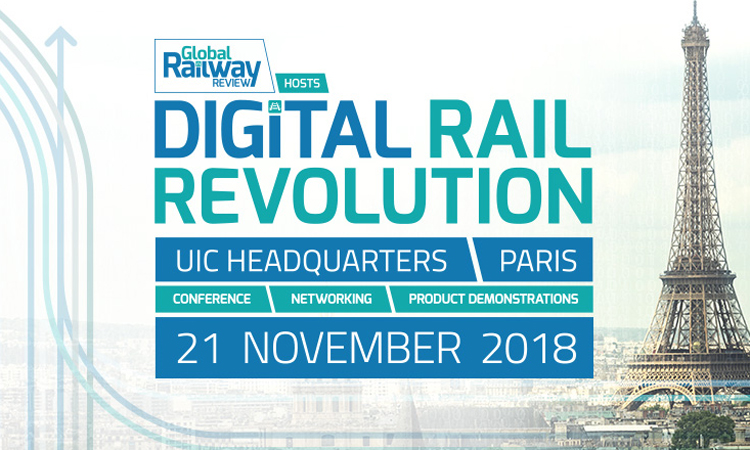

What can delegates expect to learn from your presentation at this year’s Digital Rail Revolution conference?
My presentation will discuss why Network Rail High Speed thinks innovation is important and I will go through some of the new technologies that we are adopting to transform asset management. The presentation will show how we are using big data analysis to improve our performance and increase our efficiency, the use of live video streaming through smart glasses to improve safety and how we are utilising augmented reality and digital twinning for training purposes.
What would you say has been the biggest step forward in digital technology and innovative solutions for rail in recent years?
I think the whole process of railway digitalisation is the biggest step forward for the industry since its beginning. I would probably say that in recent years the biggest advance has been around adapting our data-gathering process to the digital world. The transition from pen and paper to digital data has been challenging, and is still ongoing, but it was a game changer and is transforming the industry. In my opinion we are still at an early stage of the process but being capable to capture massive amounts of data, some in real time, for which we are still understanding the full potential and the benefits. Being able to use this data effectively will bring huge improvements to the industry.
What digital challenges do you think the railway sector will face in the future? How big of a threat are cyber-attacks to the industry?
Cyber-attacks are a real threat and cyber-security is probably one of the biggest fields to develop in the near future as we move towards a more and more digital railway. In my opinion the main immediate challenges will be around data protection, system robustness and reliability against hacking and cyber-attacks. With the current pace of change I believe that we are not even aware of some of the threats that we will face in the future. However, the key aspect is to carry out careful risk assessments as new technologies are being introduced and increase cyber-security awareness across the industry to minimise the chance of such events occurring.
What does the future of rail look like to you?
Exciting and bright! I think that within the next decade we will probably be witnessing the biggest revolution in railway since its creation. In my opinion we will see a transformation across the whole industry, from the way we manage our infrastructure and the frequency/number of trains and how we run them, through to the passenger experience, with a revolution in ticketing and eventually even the redefinition of the train carriage layout in medium to long journeys to adapt to modern day passenger demands.
Looking at the conference programme, who among your fellow speakers are you most interested to hear from and why?
I think the conference has a really interesting programme covering a wide range of topics. I am really curious to listen to how other companies are approaching the transformation into a digital railway and the methods and techniques that are being applied and I expect to learn and maybe get some new ideas from that. I think this is the perfect forum for knowledge sharing because I see it pretty much as a global industry transformation journey and we are all probably finding similar challenges. So when you get the chance to discuss it with experts worldwide you are more likely to find solutions and learn from best practice.
Biography


Related topics
Conferences & Events, Cyber-Security, Digitalisation, High-Speed Rail




